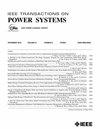基于深度强化学习的高效协同释放交通-电力耦合网络中电动汽车脱碳潜力
IF 7.2
1区 工程技术
Q1 ENGINEERING, ELECTRICAL & ELECTRONIC
引用次数: 0
摘要
作为全球脱碳议程的一部分,涉及电动汽车(EV)大规模集成的运输部门电气化是关键举措之一。然而,如果没有适当的激励和协调,电动汽车的脱碳潜力就无法发挥出来。深度强化学习(DRL)构成了一个非常适合的无模型和数据驱动的框架来协调电动汽车的充电决策。由于现有方法中智能体与环境之间的交互效率有限,其面对多重不确定性的实际应用仍然具有挑战性。为此,本文提出了一种新的基于drl的协同方法,采用预训练的边缘条件卷积网络和深度信念网络作为替代训练环境来加速交互,并结合学习加速机制来增强探索能力。该方法在交通与电网耦合(CTPN)中得到了补充。Agent学习由能源价格和碳义务价格组成的最优充电价格,激励电动汽车进行低碳协调。设计了实际规模CTPN的案例研究,结果证明了所提出的协调方法在降低运营成本和全球碳排放方面的有效性。该方法在计算效率和泛化能力方面也优于目前最先进的DRL方法。本文章由计算机程序翻译,如有差异,请以英文原文为准。
Efficient Deep Reinforcement Learning-Based Coordination for Unlocking Electric Vehicle Decarbonization Potential in Coupled Transportation and Power Networks
As a part of the global decarbonization agenda, the electrification of the transport sector involving the large-scale integration of electric vehicles (EV) constitutes one of the key initiatives. However, the decarbonization potential of EV cannot be exploited without appropriate incentive and coordination. Deep reinforcement learning (DRL) constitutes a well-suited model-free and data-driven framework to coordinate EV's charging decisions. Its real-world application facing multiple uncertainties is still challenging, due to the limited interaction efficiency between agent and environment of existing approaches. Therefore, this paper proposes a novel DRL-based coordination method, employing a pre-trained edge conditioned convolutional network and deep belief network as surrogate training environment to speed up the interaction, and combining a learning acceleration mechanism which enhances the exploration capabilities. This method is complemented in coupled transportation and power network (CTPN). Agent learns the optimal charging price composed of energy price and carbon obligation price, and incentivizes EV low-carbon coordination. Case studies involving a real-world scale CTPN are designed and the results demonstrate the effectiveness of the proposed coordination method in mitigating the operational cost and global carbon emission. The proposed method is also proved to outperform the state-of-the-art DRL methods in terms of the computational efficiency and generalization ability.
求助全文
通过发布文献求助,成功后即可免费获取论文全文。
去求助
来源期刊

IEEE Transactions on Power Systems
工程技术-工程:电子与电气
CiteScore
15.80
自引率
7.60%
发文量
696
审稿时长
3 months
期刊介绍:
The scope of IEEE Transactions on Power Systems covers the education, analysis, operation, planning, and economics of electric generation, transmission, and distribution systems for general industrial, commercial, public, and domestic consumption, including the interaction with multi-energy carriers. The focus of this transactions is the power system from a systems viewpoint instead of components of the system. It has five (5) key areas within its scope with several technical topics within each area. These areas are: (1) Power Engineering Education, (2) Power System Analysis, Computing, and Economics, (3) Power System Dynamic Performance, (4) Power System Operations, and (5) Power System Planning and Implementation.
 求助内容:
求助内容: 应助结果提醒方式:
应助结果提醒方式:


